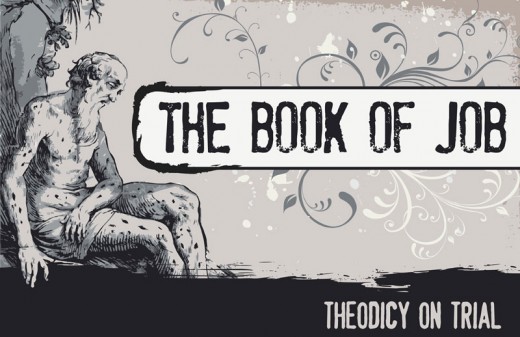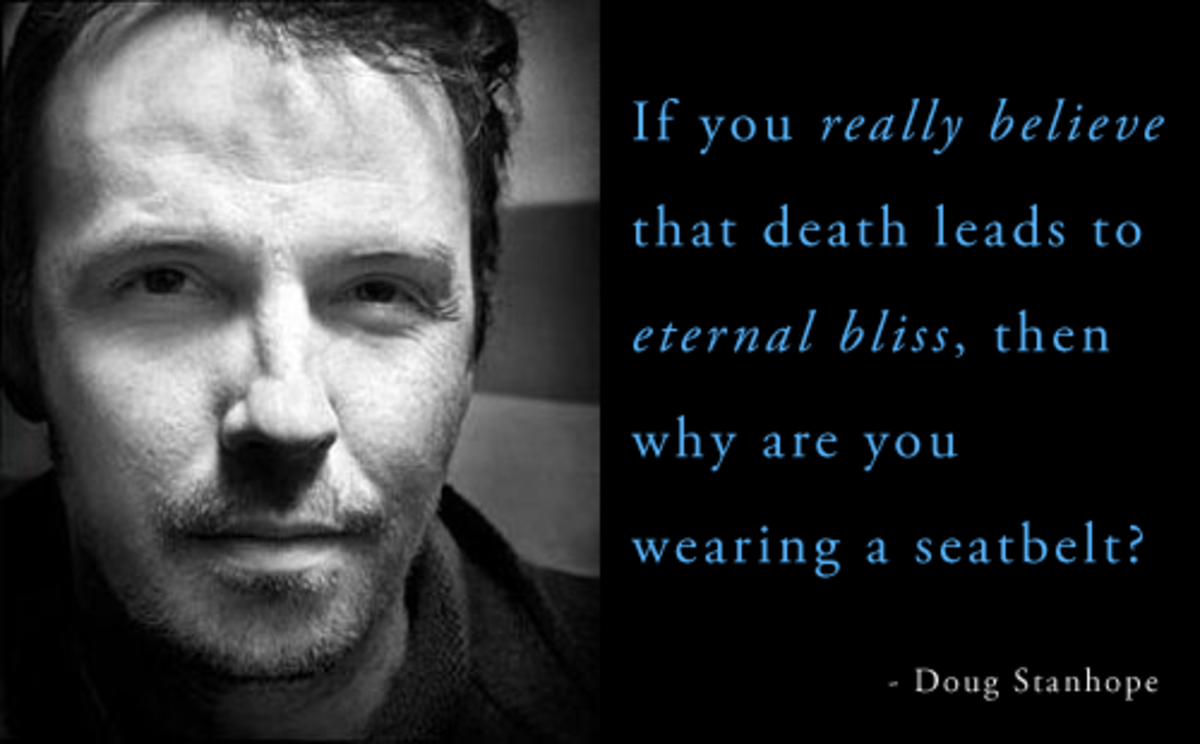Did God Foresee this: Questioning Theodicy

Faith Regardless
Like many, I have faith in the message of the bible. All of it, extraordinary bits included. It answers the big questions of life, explains the condition we find ourselves in and provides an astonishing solution; while also promising incredible purpose, joy, peace, comfort and hope for those who submit to its message.
That said, I acknowledge that some things remain difficult to understand, and at times these obscurities can rise up to confront our faith.
To Quote Dr Barry Whitney ~ We live in a world of unprecedented atheism, humanism and despair. Ours is a world where belief in God certainly is not easy to maintain ~
A Measured Response to Scepticism
A fact of the faith-filled life throughout history has always been the likelihood of opposition. For all who would adopt faith in the face of contemporary wisdom and knowledge, they will eventually meet objection, ridicule or even persecution; and let’s face it, the Bible is full of things that stand well outside modern convention, data and experience; and therefore fair game in the eyes of the sceptic.
In these situations the Christian has response options, and, just as with scripture, context should determine our reaction. Sometimes it is best to remain silent, especially if we lack the patience or capacity to properly understand the argument or formulate a structured well-presented response.
At other times we may need to acknowledge our inability to answer and seek wiser council; after all most questions have already been well researched and documented by minds possibly better prepared than our own.
Of course, there are also times we would be at fault to offer no defence. However, objectiveness is not always easy to maintain and too often arguments avalanche into passionate exchanges rather than elevate into profitable ones; enough said.
Which comment do you most relate with
The prevalence of suffering in our world...
Theodicy
Of all the arguments against the Christian faith, perhaps none is as challenging to answer and confronting in ramification than the seeming paradox of an Almighty Holy God and the existence and prevalence of "evil".
To Quote Margaret Manning ~ the experience of suffering in light of both the goodness and power of God has caused many to doubt God, and others to walk away from faith altogether. If God does not prevent suffering, and if God does not care about the sufferer, then God does not exist in any meaningful way ~
Many there are that will use this apparent incongruity to "prove" Gods non-existence, or that he isn't the good God spoken of in the Bible. Therefore, they would contend, if there is such a creator Being, he is to be blamed for evil rather than applauded as holy .
To quote Dr Barry White ~ In recent decades, this problem has escalated as a challenge not only to God's justice but to God's very existence. How is suffering to be understood? Does God cause it, or allow it, for good reason? How do the answers to these questions influence our belief or disbelief in God? How does belief or disbelief influence our ability to cope with the seemingly endless litany of suffering which wreaks havoc on our world, from the torments of mental anguish to the raw ordeal of physical pain and the fragility and precariousness of life? How is belief in God reconciled with this dark side... ~
I've seen at least one Hubber use this very argument, "If God created Lucifer in full knowledge of the evil that was to transpire, had the power to prevent it by refusing to create Lucifer, then it was God's will that, A) Lucifer live, and B) evil happen." Their implied conclusion: An omnipotent all good God wouldn't have needed or wanted to do this, therefore such a God does not exist.
If God created Lucifer in full knowledge of the evil that was to transpire, had the power to prevent it by refusing to create Lucifer, then it was God's will that, A) Lucifer live, and B) evil happen.
How can one respond to this?
To begin with we should appreciate that this is not a new argument.
To quote from one Christian Apologetics website ~ How could a holy and loving God who is in control of all things allow evil to exist? The answer has been debated for as long as the church has existed. We still do not have a definitive answer and the Bible does not seek to justify God's actions ~
So it has been around for a long time, such that there is even a unique term given to defences made against it: THEODICIES
The Encyclopaedia Britannica
Defines theodicy as: Any explanation of why a perfectly good, almighty, and all-knowing God permits evil.
It was a word invented in the seventeenth century by Gottfried Wilhelm Leibniz, an intellectual thinker of the Enlightenment period.
Theodicies can be distinguished from defenses, and argue that it is reasonable to believe that God has reasons for allowing evil even if we do not know what those reasons are.
However, debate on this subject can become complex; though antagonists will rarely admit to any such complexity. To them it is cut and dry, chiefly because they have premised that such an argument reduces/eliminates the possibility of there being a biblical God. However, for most Christian theologians the question doesn't eliminate God from the picture at all, it merely challenges their perception of him; though admittedly for some believers it has shattered it.
The intent of this hub is not an outright answer, but an examination of how such questions may be answered -- if humanly possible.

The Job Complex
This gem of a story right in the middle of the scriptures reveals that questions of God's goodness and justice in regards to seemingly arbitrary and severe suffering were prevalent in the minds of the ancients.
Much like the modern man, the ancients may also have used the argument of suffering to displace God. But whether they did or did not, like us, it remained a cause of confusion and misunderstanding in their lives.
Again, to quote Dr Barry White ~The Book of Job has extraordinary relevance not only for those who believe in God (yet for whom suffering is often a serious challenge to that belief), but also for those who reject belief in God (and do so largely because of the apparent inability to intellectually reconcile suffering with a loving, powerful, and just God). Job, as such, has much to offer anyone who seeks insight into the question of God and suffering ~

When reading Job, some notable points should be considered from the very first chapter:
- Satan enters into God's presence (Job 1:6f). This has always struck me as interesting, that a being often portrayed as the personification of evil (Lucifer), is allowed into God's holy presence with the angels [sons of God]. There is perhaps facets of God and Satan's relationship that we are not privy to.
- God asks Satan the question, "From where do you come from?" Which to some raises the question of why God asked; did he not know already? Or was it that he knew exactly where Satan had been and was therefore pre-empting Satan's purpose in being there? Satan responds, "From going to and fro on the earth, and from walking back and forth on it." Which rings of the warning regarding Satan in 1 Peter 5:8 ... seeking someone to devour.
- God raises the matter of Job; blameless, upright, God-fearing Job. He asks, "Have you set your heart on my servant Job...?" (Job 1:8)
- Satan had indeed set his heart on Job, and fully sought to devour him; it may even have been his purpose in coming before God.
- After attributing Job's righteousness to nothing more than sensible self-interest, Satan sets upon God a challenge, "Stretch out YOUR hand and touch all that he has...". It should be noted that Satan attributes God's hand as being required in anything befalling Job, whether good or ill. (Job 1:11)
- God acquiesces to the challenge and permits Satan to do his worst with Job, albeit his life be spared. (Job 1:12). And so, it seems, we have Satan becoming the instrument of God at Satan's request, with poor Job in the middle.
Then the Lord said to Satan, "Have you considered my servant Job, that there is none like him on earth, a blameless and upright man, one who fears God and shuns evil? And still he holds fast his integrity, although you incited me against him, to destroy him without cause."
— The BibleThis very first chapter both answers and raises pertinent questions regarding the topic we are addressing:
- God not only allows Satan to exist, but freedom to act according to his own purposes; both in heaven and on earth. Why does God allow Satan to exist in such a powerfully free capacity?
- God was behind Job's "blessed" condition; Satan did not lie on this account. If nothing changed in regards to Job's "blamelessness", what reasons does God have in choosing to lift his hand of blessing away? What was it about Satan or his challenge, or Job, that leads God to this decision?
- God accepts Satan's challenge as worth acting upon, and gives his "permission" to Satan's planned torments of Job. Accepting that God does not condone evil, how should we interpret God's indisputable agreement to Job's suffering? Does this tell us anything about the nature of suffering in regards to its moral objectivity?
- Satan's power is limited to some degree by God's will. What purpose might God have in limiting Satan's power and plans?
We will attempt to address some of these points and answer some of these questions as we go.
Obstacles to understanding Evil
Personally, I think one of the hurdles in addressing this question is in establishing a consensus on what 'evil' means.

Approaching this subject with a differing hermeneutic normally creates insurmountable obstacles to reaching agreement; and really, we waste our time trying in such situations.
Unless we can establish what evil is, we cannot really hope to agree on Gods association with it in relation to his other qualities.
For example:
- A Christian perspective is that evil is any will that stands in opposition to Gods
- Another perspective might be that evil is anything that results in suffering
- Another, that evil is anything perverting the natural order of things
- Another might portray evil as the absence of good
- Or, there is no such thing as evil; no absolutes
To illustrate the point, let's look at a biblical example in which ones perception of evil has everything to do with determining their conclusions:

In the Old Testament we have the situation where Israel is commanded to take possession of the land of Canaan; an inheritance promised to Abraham almost 500 years beforehand (Gen 12:7) and repeatedly described as a gift from God (e.g. Leviticus 14:33-24). Therefore it was God's will they have it. However, on their arrival at Canaan's border they find that the land is filled with the peoples of other nations. To accept the gift they must therefore take possession of it (there's a faith lesson in there somewhere). What was to follow was a series of battles aimed at annexing the land. We have, then, three things in play throughout the events leading up to and including the battles:
- God's will - his promise stands
- Those pursuing that will - believing the promise in the face of obstacles
- Obstacles presented in opposition to Gods will - challenges to possessing the promise
How an individual makes sense of the suffering that was to result from these three elements has everything to do with their perspective on what is evil.
- A believer in the divine will of God sees the evil as being at point three. For example: It would have been evil if, in the face of obstacles, Israel lost faith in Gods promise and failed to take possession of the land.
- Atheists will see point one as "delusion"; and by association point two. To them there is no God, therefore pursuit of his will is misguided and, if it results in suffering, is evil.
- Those suffering as a result of Israel's faith may see the evil as point two. Anyone that threatens their comfort is committing evil; to attempt to take from us what we claimed first is evil.
From the Christian perspective neither God nor Israel saw any evil in their decisions or actions. The "evil" of the suffering these decisions and actions caused was regrettable, but ultimately achieved a purpose of God that transcended them.
From the unbelievers perspective there is no justification for the suffering of these events, for there is no God, no divine will, no transcending purpose.
We'll continue this discussion in Part 2...
- Domain Not Valid
- Daily apologetics resource
- Haiti and Theodicy
Christian Today > When the great earthquake of 1755 rocked Lisbon, it raised all sorts of questions about God and faith. The quake, along with a devastating tsunami and massive fires, resulted in anywhere from 10,000.. - Apologetics Press - The Problem of Suffering: Further Arguments
Apologetics Press, Inc.
© 2010 Richard Parr








